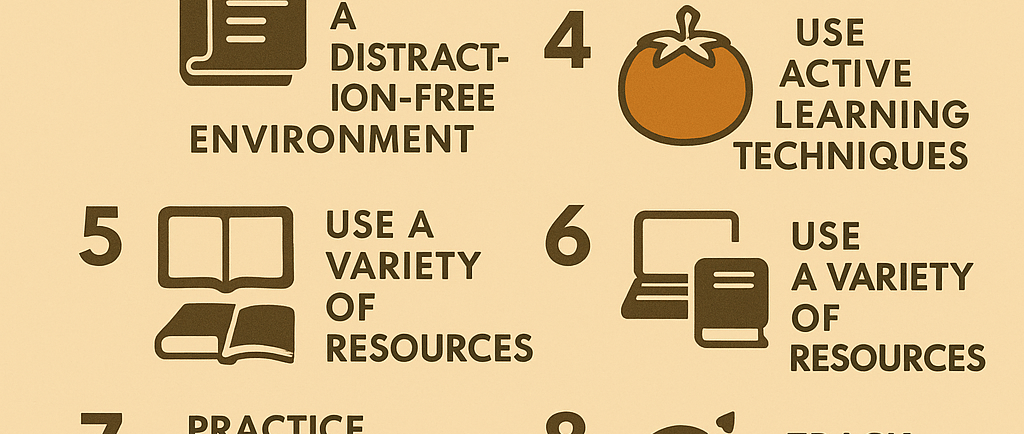10 Good Practices for Effective Self-Study


Self-study is one of the most powerful tools for mastering any subject—especially in today’s world of open resources and digital learning. Whether you’re preparing for exams or learning something new, these ten good practices can significantly boost your productivity and understanding:
1.Set Clear Goals
Define what you want to achieve in each session. Setting short-term and long-term goals gives your study direction and helps you stay focused.
2.Create a Study Schedule
Consistency matters. Design a weekly plan that allocates dedicated time slots for each subject or topic. Stick to the routine like a class timetable.
3.Design a Distraction-Free Environment
Choose a quiet, well-lit space with minimal distractions. Keep your phone on silent or use focus apps to maintain concentration.
4.Use Active Learning Techniques
Don’t just passively read or watch. Take notes, ask yourself questions, solve problems, and try to explain concepts in your own words.
5.Apply the Pomodoro Technique
Study in 25-minute focused intervals with 5-minute breaks. After four sessions, take a longer 15–30 minute break. This improves concentration and prevents burnout.
6.Use a Variety of Resources
Combine textbooks, videos, practice papers, and online platforms. Different formats help reinforce concepts through multiple learning styles
7.Practice Self-Testing Regularly
Quizzing yourself or using flashcards boosts memory and highlights weak areas. This is far more effective than rereading notes repeatedly.
8.Revise Frequently
Use spaced repetition to revisit topics periodically. Frequent revision helps move knowledge from short-term to long-term memory.
9. Track Your Progress
Maintain a study journal or digital tracker. Record what you’ve studied, what went well, and what needs improvement. This builds motivation and accountability.
10. Stay Healthy and Balanced
Eat well, sleep enough, and exercise regularly. A healthy body supports a healthy mind. Don’t neglect your well-being for study success.
Conclusion:
Self-study isn’t about studying longer—it’s about studying smarter. With discipline, the right strategies, and a positive mindset, you can become an independent and confident learner.
